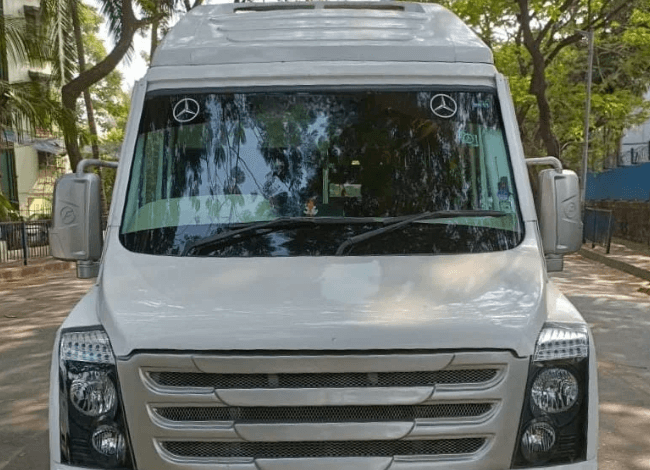Corporate Offsites & Team Retreats: Simplify Your Transport Planning

Planning a corporate offsite or team retreat involves numerous moving parts, and transport coordination often becomes the most challenging aspect. When you’re managing a large group of employees, getting everyone to the destination on time and in good spirits sets the tone for the entire event. Poor transport planning can lead to delays, frustration, and a fragmented team experience before the retreat even begins.
Finding a Tempo Traveller on Rent Mumbai has become a practical solution for many corporate teams heading to nearby destinations. Rather than juggling multiple cars or expecting employees to arrange their own transport, a single well-organised vehicle brings the group together from the start. This approach reduces the administrative burden on organisers and creates an opportunity for team bonding during the journey itself.
The Challenge of Multi-Vehicle Coordination
Tracking Multiple Departure Points: When team members drive separately or carpool, coordinating departure times becomes surprisingly complex. Different drivers face varying traffic conditions, take different routes, and arrive at staggered intervals. This fragmentation means some team members wait around whilst others scramble to catch up, wasting valuable time that could be spent on planned activities.
Communication Breakdowns En Route: Managing a convoy of multiple vehicles creates communication challenges that many organisers underestimate. If one car breaks down or takes a wrong turn, the entire group dynamic suffers. Mobile networks can be patchy on certain routes, making it difficult to provide real-time updates or coordinate stops for meals and refreshments.
Hidden Costs Add Up Quickly: The financial aspect of multi-vehicle arrangements often reveals itself only after the event. Fuel reimbursements, toll charges, and parking fees multiply across several vehicles. Add potential breakdown assistance or route diversions, and the budget quickly spirals beyond initial estimates, leaving finance teams frustrated with unexpected expense claims.
Benefits of Consolidated Group Transport
Single Point of Accountability: Choosing one vehicle for the entire team creates clear accountability for the journey. You know exactly when the vehicle departs, which route it takes, and the estimated arrival time. This clarity reduces the organisational stress considerably and allows planners to focus on other aspects of the offsite programme.
Comfort Standards Maintained Throughout: A properly equipped vehicle ensures every team member travels in similar comfort levels. Climate control, adequate seating space, and storage for luggage become standardised rather than varying wildly between different cars. This consistency matters more than many realise, as uncomfortable journeys can affect participant mood and engagement levels.
Professional Driving Reduces Risks: Experienced drivers familiar with routes to popular offsite destinations navigate traffic patterns and road conditions with greater confidence. Team members avoid the fatigue of driving long distances, arriving refreshed and ready to participate. The safety considerations alone make this approach worthwhile for most organisations.
Creating the Right Environment for Team Interaction
Natural Conversation Opportunities: The journey itself becomes an extension of team building when everyone travels together. Colleagues from different departments who rarely interact in the office find themselves sitting together, perhaps sharing snacks or discussing weekend plans. These organic conversations strengthen workplace relationships in ways that structured activities sometimes struggle to achieve.
Shared Experience Builds Connection: There’s something about a group journey that creates collective memories. Whether it’s enjoying scenic views together, laughing at an unexpected detour, or singing along to music, these shared moments contribute to team cohesion. The journey stops being merely functional transport and becomes part of the retreat experience itself.
Briefing Time Before Arrival: Smart organisers use travel time to brief the team about the upcoming activities and objectives. You can distribute materials, explain the schedule, or conduct ice-breaker activities during the journey. This preparation means you hit the ground running once you reach the destination, maximising the effectiveness of limited offsite time.
Practical Considerations for Popular Routes
Mumbai to Lonavala Logistics: This popular route of approximately 83 kilometres takes around two hours under normal conditions. The journey involves navigating city traffic before reaching the expressway. Starting early helps avoid peak congestion, and the scenic ghats provide pleasant views that help team members relax. Rest stops at designated points allow for refreshments without significantly extending journey time.
Coastal Routes to Alibaug: Reaching Alibaug involves either a ferry crossing or a longer road journey via Pune-Panvel. The ferry option adds an interesting dimension to the trip, though it requires careful timing around ferry schedules. Road routes take roughly three to four hours depending on traffic. Coastal scenery makes the journey enjoyable, and planning comfort stops becomes particularly important for longer durations.
Corporate Hub Connectivity to Pune: The Mumbai-Pune route stretches approximately 150 kilometres and typically takes three to four hours. Many corporate teams choose this destination for multi-day retreats given Pune’s infrastructure and venue options. The expressway offers smooth connectivity, though weekend traffic can be heavy. Planning departures during off-peak hours makes a noticeable difference to journey comfort.
What Organisations Typically Evaluate
Capacity Planning Accuracy: Getting the vehicle size right matters significantly. A 17-seater works well for smaller teams, whilst larger groups might need multiple vehicles or bigger capacity options. Accurate headcounts and luggage requirements help determine appropriate specifications. Some teams forget to account for equipment or presentation materials, leading to cramped conditions.
Timing and Schedule Flexibility: Corporate schedules often face last-minute changes, and transport arrangements need some flexibility built in. Understanding cancellation policies, rescheduling options, and buffer time for delays helps organisations plan more effectively. Rigid arrangements that cannot accommodate reasonable adjustments create unnecessary stress for everyone involved.
Safety and Reliability Standards: Organisations increasingly scrutinise vehicle maintenance records and driver qualifications before confirming bookings. Insurance coverage, emergency contact protocols, and breakdown support become important evaluation criteria. These factors might seem secondary during planning but prove crucial if problems arise during the journey.
Key Selection Criteria
When evaluating group transport options for corporate offsites, organisations typically focus on several practical factors:
- Vehicle condition and cleanliness standards that reflect professional image and ensure passenger comfort throughout the journey.
- Driver experience with specific routes to popular offsite destinations, including knowledge of alternative paths during high-traffic periods.
- Clear pricing structures that outline all costs upfront, including fuel, tolls, parking, and driver allowances without hidden charges.
- Cancellation and modification policies that provide reasonable flexibility for corporate schedule changes whilst protecting both parties.
- Emergency support systems including 24-hour helplines, backup vehicle arrangements, and roadside assistance for unexpected situations.
Conclusion
Organising transport for corporate offsites deserves as much attention as venue selection and programme planning. The journey influences team mood, punctuality, and overall retreat effectiveness more than many organisers initially recognise. Consolidated group transport addresses coordination challenges, creates opportunities for informal team bonding, and ensures everyone arrives together and ready to participate.
Whether you’re planning a day trip to nearby destinations or a longer retreat further afield, thoughtful transport arrangements contribute significantly to event success. Consider your team size, destination requirements, and schedule constraints carefully when planning your next corporate offsite, and prioritise transport solutions that bring your team together rather than scatter them across multiple vehicles.



